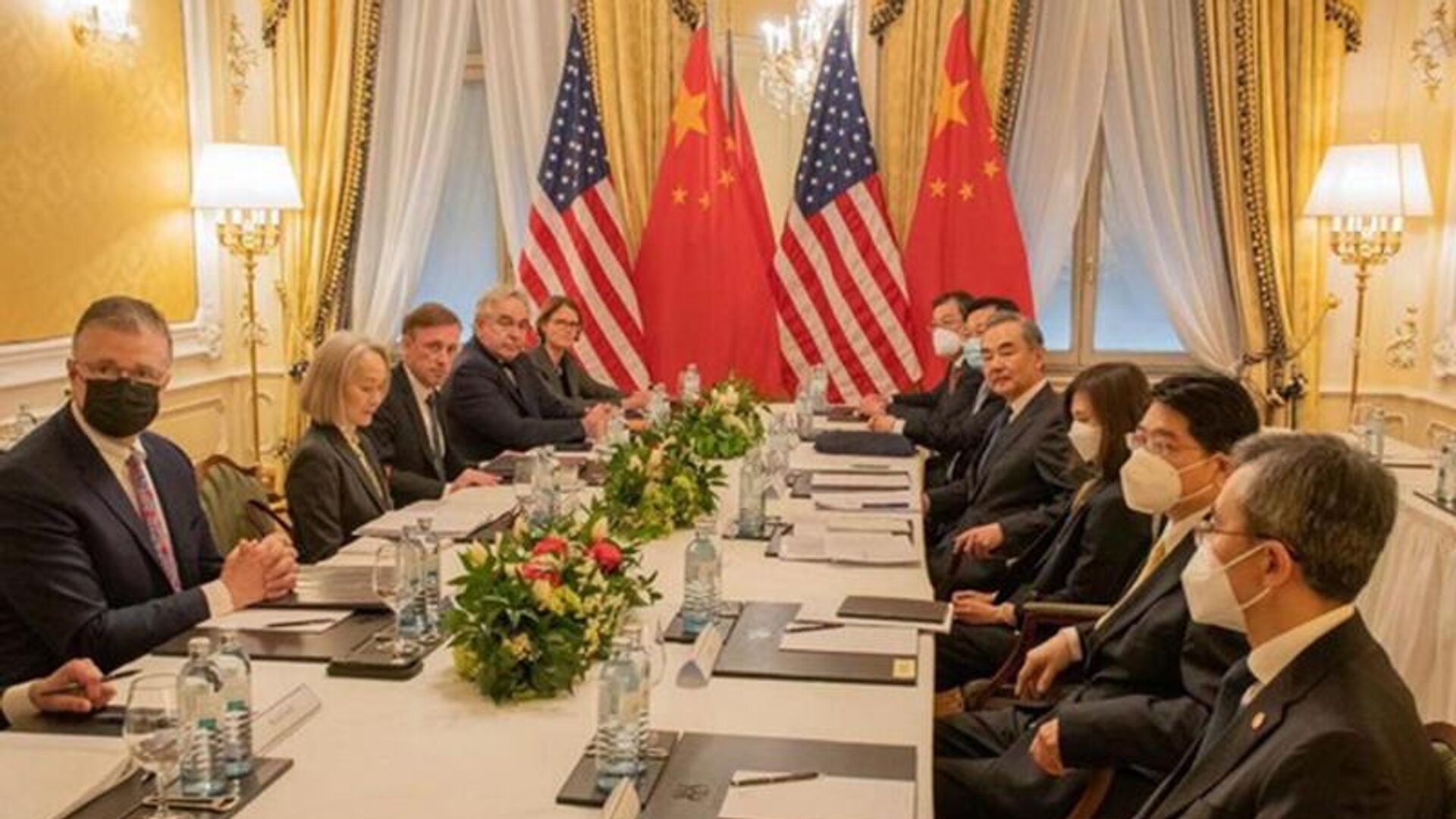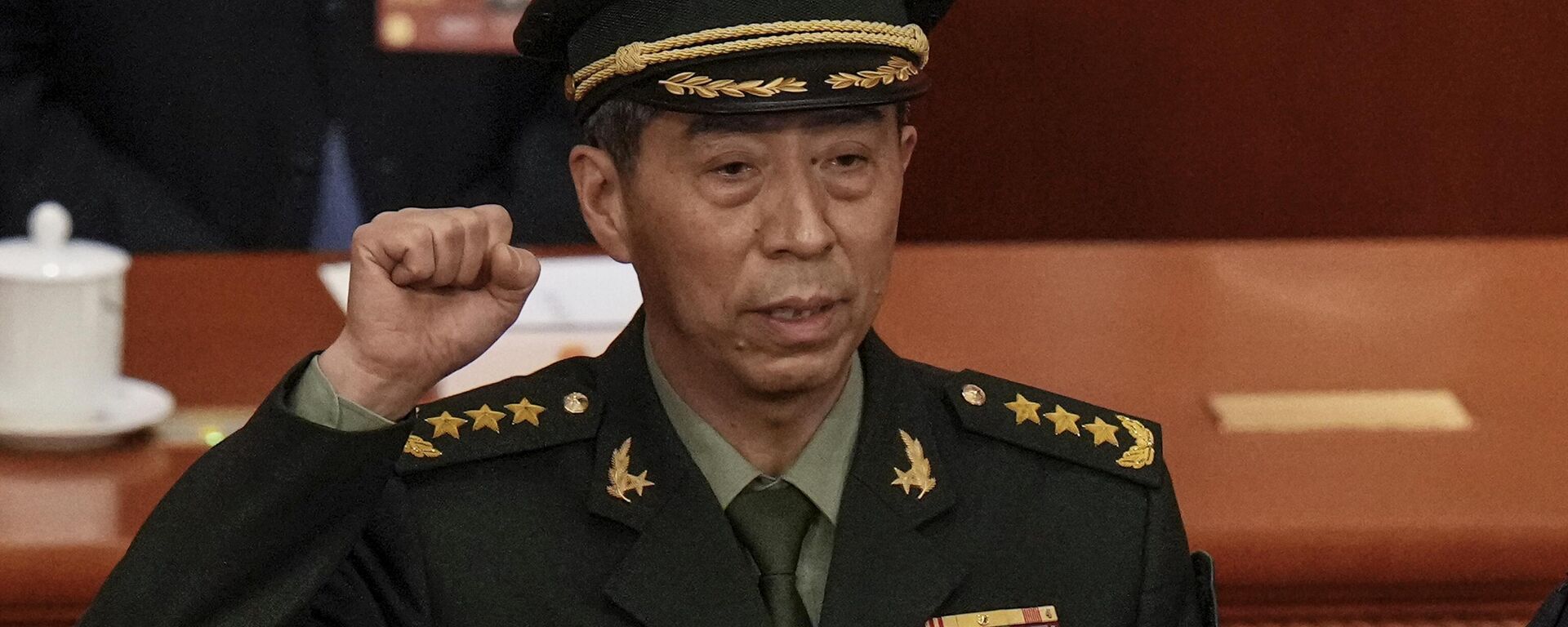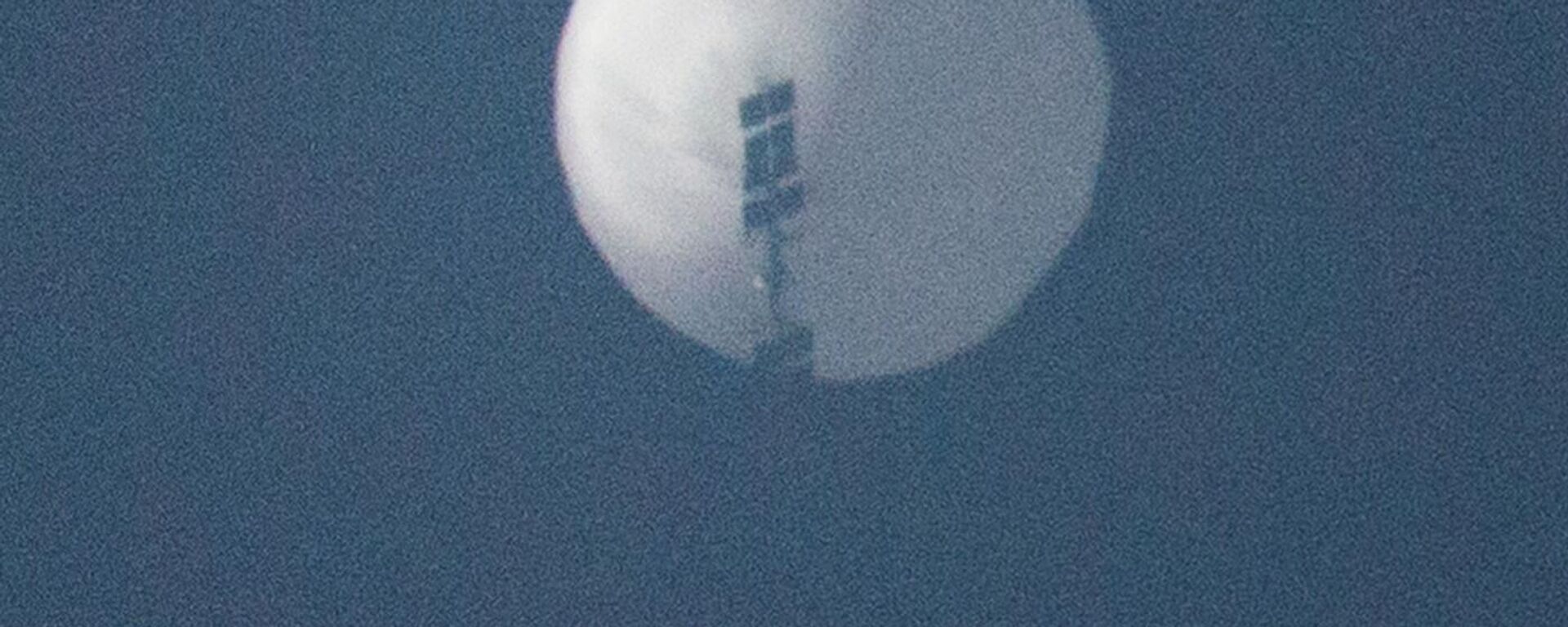https://sputnikglobe.com/20230512/sullivan-tells-chinas-wang-yi-us-wants-to-move-beyond-balloon-incident-1110300515.html
Sullivan Tells China's Wang Yi US Wants to 'Move Beyond' Balloon Incident
Sullivan Tells China's Wang Yi US Wants to 'Move Beyond' Balloon Incident
Sputnik International
The US is looking to reestablish high-level ties with China, put largely on hold after the US detected and shot down what it claimed was a spy balloon dispatched by the Chinese government to soar over US soil.
2023-05-12T19:05+0000
2023-05-12T19:05+0000
2023-05-12T19:05+0000
world
us-china relations
wang yi
jake sullivan
chinese balloon over us
https://cdn1.img.sputnikglobe.com/img/07e7/05/0c/1110300359_0:1:800:451_1920x0_80_0_0_c3d916c3ee28cec90f3a83fe7e309696.jpg
The US is further looking to reestablish its high-level ties with the People's Republic of China (PRC), put largely on hold for more than three months after the US detected and shot down what it claimed was a spy balloon dispatched by the Chinese government to soar over US soil.That was the message of White House national security adviser Jake Sullivan at a series of meetings on Wednesday and Thursday in Vienna, Austria, with Wang Yi, the highest-ranking Chinese diplomat who leads the Communist Party of China’s foreign affairs bureau."This meeting was part of ongoing efforts to maintain open lines of communication and responsibly manage competition," an official White House readout of the meeting said. "The two sides agreed to maintain this important strategic channel of communication to advance these objectives, building on the engagement between [Biden and Chinese President Xi Jinping] in Bali,” which happened on the sidelines of the G20 summit last November.A report in China's Global Times, also based on an anonymous Chinese diplomatic source, revealed the talks went on for 10 hours and covered a wide range of topics, including the balloon incident, ongoing tensions over American support for Taiwan, US moves in what it calls the "Indo-Pacific" region, and the conflict in Ukraine.Shared ConcernsZhu Feng, a professor of international relations at Nanjing University, was quoted in Chinese media as saying the meeting was "timely and necessary."Sullivan's meeting with Wang was not the only such encounter this week, either, with Nicholas Burns, the US ambassador to China, meeting with Chinese Foreign Minister Qin Gang on Monday. At that meeting as well, both sides reaffirmed their desire to return to the consensus reached between Biden and Xi in Bali in November: to compete, but not let things get out of hand."[We] hope the US will reflect deeply, meet China halfway, and push China-US relations out of the predicament and back on track."Rocky RelationsThe downing of the balloon off the South Carolina coast came after tracking the object’s flight across the continental United States and Canada for several days, and culminated in US accusations that the balloon's purpose was strategic surveillance. After, a momentary "balloon hysteria" gripped US and Canadian defense officials, with multiple unidentified objects being downed in the skies along their respective border regions.Beijing confirmed the first balloon was Chinese in origin, but claimed it was a civilian scientific balloon over which it had lost control, and denied any intelligence-gathering purpose behind it. Washington alleged the balloon was just one part of a vast Chinese spying program based on lighter-than-air craft due to the difficulty of detecting them. Blinken, scheduled to travel to Beijing for talks with Wang, Qin, and Xi, suddenly postponed his trip, saying the timing was not appropriate.Taiwan figures strongly in US strategy plans for what it calls "great power competition" with Russia and China, which are based on the idea that Beijing and Moscow are seeking to upend the postwar international order led by the United States.
https://sputnikglobe.com/20230511/us-china-defense-chiefs-meeting-reportedly-impossible-over-sanctions-1110257074.html
https://sputnikglobe.com/20230418/us-house-passes-bill-to-hold-china-accountable-for-balloon-incident-1109607933.html
Sputnik International
feedback@sputniknews.com
+74956456601
MIA „Rossiya Segodnya“
2023
News
en_EN
Sputnik International
feedback@sputniknews.com
+74956456601
MIA „Rossiya Segodnya“
Sputnik International
feedback@sputniknews.com
+74956456601
MIA „Rossiya Segodnya“
sullivan; wang yi; china; balloon; vienna
sullivan; wang yi; china; balloon; vienna
Sullivan Tells China's Wang Yi US Wants to 'Move Beyond' Balloon Incident
Following the downing of a high-altitude balloon over the United States in February, US Secretary of State Antony Blinken postponed his trip to China and Washington severed nearly all high-level relations with Beijing. However, at an unpublicized meeting in Vienna earlier this week, the US signaled it wants to bury the hatchet.
The US is further looking to reestablish its high-level ties with the People's Republic of China (PRC), put largely on hold for more than three months after the US detected and shot down what it claimed was a spy balloon dispatched by the Chinese government to soar over US soil.
That was the message of White House national security adviser Jake Sullivan at a series of meetings on Wednesday and Thursday in Vienna, Austria, with Wang Yi, the highest-ranking Chinese diplomat who leads the Communist Party of China’s foreign affairs bureau.
A Biden administration official anonymously told US media on Thursday that the White House was “looking to move beyond” the February balloon incident, which both sides described as “unfortunate” and are now looking to “reestablish standard, normal channels of communications.”
"This meeting was part of ongoing efforts to maintain open lines of communication and responsibly manage competition," an official
White House readout of the meeting said. "The two sides agreed to maintain this important strategic channel of communication to advance these objectives, building on the engagement between [Biden and Chinese President Xi Jinping] in Bali,” which happened on the sidelines of the G20 summit last November.
A report in China's Global Times, also based on an anonymous Chinese diplomatic source, revealed the talks went on for 10 hours and covered a wide range of topics, including the balloon incident, ongoing tensions over American support for Taiwan, US moves in what it calls the "Indo-Pacific" region, and the conflict in Ukraine.
The Chinese diplomats emphasized that “the US side overreacted and abused force in the unmanned civilian airship incident and lessons must be learned from the incident,” the source said, according to the paper.
Zhu Feng, a professor of international relations at Nanjing University, was quoted in Chinese media as saying the meeting was "timely and necessary."
"It was not a total surprise and it’s good to see there is consensus on the necessity of resuming direct communications and dialogue for the sake of crisis management and exploring possible opportunities for cooperation," he said. "That’s what diplomacy is about. Neither side can dwell on finger-pointing and verbal sparring. Both China and the US share concerns about many pressing issues, including the global implications of a prolonged war in Ukraine."
Sullivan's meeting with Wang was not the only such encounter this week, either, with Nicholas Burns, the US ambassador to China, meeting with Chinese Foreign Minister Qin Gang on Monday. At that meeting as well, both sides reaffirmed their desire to return to the consensus reached between Biden and Xi in Bali in November: to compete, but not let things get out of hand.
"The top priority is to stabilize China-US relations, avoid a downward spiral, and prevent accidents between China and the United States. This should be the most basic consensus and a bottom line for countries to keep, especially two major countries," Qin told Burns, according to media reports.
"[We] hope the US will reflect deeply, meet China halfway, and push China-US relations out of the predicament and back on track."
The downing of the balloon off the South Carolina coast came after tracking the object’s flight across the continental United States and Canada for several days, and culminated in US accusations that the balloon's purpose was strategic surveillance. After, a momentary "balloon hysteria" gripped US and Canadian defense officials, with multiple unidentified objects being downed in the skies along their respective border regions.
Beijing confirmed the first balloon was Chinese in origin, but claimed it was a civilian scientific balloon over which it had lost control, and denied any intelligence-gathering purpose behind it. Washington alleged the balloon was just one part of a vast Chinese spying program based on lighter-than-air craft due to the difficulty of detecting them. Blinken, scheduled to travel to Beijing for talks with Wang, Qin, and Xi, suddenly
postponed his trip, saying the timing was not appropriate.
The rupture in relations came just as the two nations were beginning to heal the wounds opened by the August visit to Taiwan by then-US House Speaker Nancy Pelosi. China regards the island as a breakaway province destined to be reunited with the mainland, but the US has continued to funnel weapons to the government in Taipei over Chinese objections, even though Washington formally recognizes Beijing’s position on Taiwan. The visit was seen as a violation of the PRC sovereignty and sparked major Chinese military drills around the island.
Taiwan figures strongly in
US strategy plans for what it calls "great power competition" with Russia and China, which are based on the idea that Beijing and Moscow are seeking to upend the postwar international order led by the United States.




